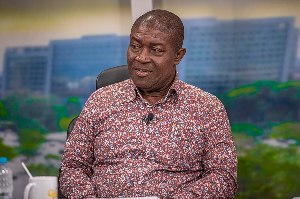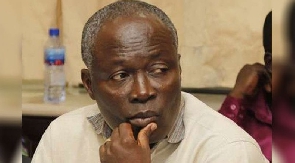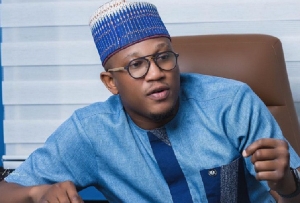A letter of collaboration covering the “Tigo Fishers Network Initiative,” a project aimed at providing fisher folk with tailored mobile solutions using Tigo platform, had been signed in Accra.
The USAID’s Ghana Sustainable Fisheries Management Project (SFMP), a US Government funded food security project which seeks to rebuild Ghana’s marine fish stock, on Friday signed the partnership agreement with the Fisheries Commission and Tigo Ghana Limited, a mobile network operator.
Tigo Fisheries Network would provide fishermen, fish processors and fish farmers with the tools to increase access to information about good fisheries practices, facilitate cost effective communications among fisher folk, and promote household savings and the use of mobile money for their business transactions.
Mr Stephen Essien, the Chief Business Officer at Tigo Ghana, signed on behalf of his company while Dr Brian Crawford, the Chief of Party, USAID/ SFMP, signed for his organisation.
Mrs Matilda Quist, the Head of Marine Fisheries at the Fisheries Commission, signed for the Commission.
Mr Jojo Solomon, the Acting National President of Ghana Canoe Fishermen Council, and Ms Regina Solomon, the President of National Fish Processors and Traders Association of Ghana, were present to witness the signing.
Dr Crawford said under the initiative, the Fisheries Commission would support the Network by using fishing communities to enable fisher folk to anonymously report illegal fishing and encourage best practices for sustainable fishing.
Services under the partnership would also be scaled to cover the coastal fishing communities and along the Volta Lake after a pilot phase of the implementation had been done in selected coasts that were yet to be agreed upon among stakeholders.
Dr Crawford said the need to educate the beneficiaries of the initiative through proper engagement and reaching out to them in their own languages to make the programme more useful to them.
Nii Ofori Tackie-Otoo, the Senior Private Sector Partnership Specialist of USAID/SFMP, who is also coordinating Tigo Fishers Network, explained that the project was a private-public partnership that sought to improve the livelihoods of fisher folk, increase food security and reduce poverty within the fisheries sector.
He said by the end of April, a stakeholder consultation involving fisher folk and other relevant organisations and individuals would be held to discuss and agree on which communities could be selected to pilot the project.
He said under the project, the fisher folk would also be provided with mobile handsets to be paid within 24 months under an instalment payment package of GH¢5.00 per month while an amount ranging from GH¢3.00 and GH¢5.00 would be charged for the services on monthly basis.
He said by June and July, full implementation of the project would take off after the needed consultations have been done.
Mr Essien, on behalf of Tigo, said the partnership was another step towards the company’s commitment to ensuring that every sector of the economy was actively incorporated into the financial inclusion agenda of the country.
He expressed the hope that the initiative would enhance stakeholder collaboration and engagement, information sharing and dissemination towards sustainable fisheries management.
“Our commitment to this project is to improve the fortunes of fisher folk in Ghana through innovative mobile solutions, and it is our belief and desire that the solutions we provide will inure to the benefits of all stakeholders involved in this project,” Mr Essien said.
Mrs Quist said the project was a laudable partnership that was being targeted at some 10 per cent of the nation’s population who work directly or indirectly in the fishing sector.
She said the sector generated over one billion dollars in revenue annually and accounts for at least 4.5 per cent of Ghana’s GDP.
Mrs Quist said it was, therefore, welcoming that the main players were being tackled to leverage their resources and capabilities through application of ICT to improve their operations.
Click to view details



Business News of Saturday, 1 April 2017
Source: GNA

















